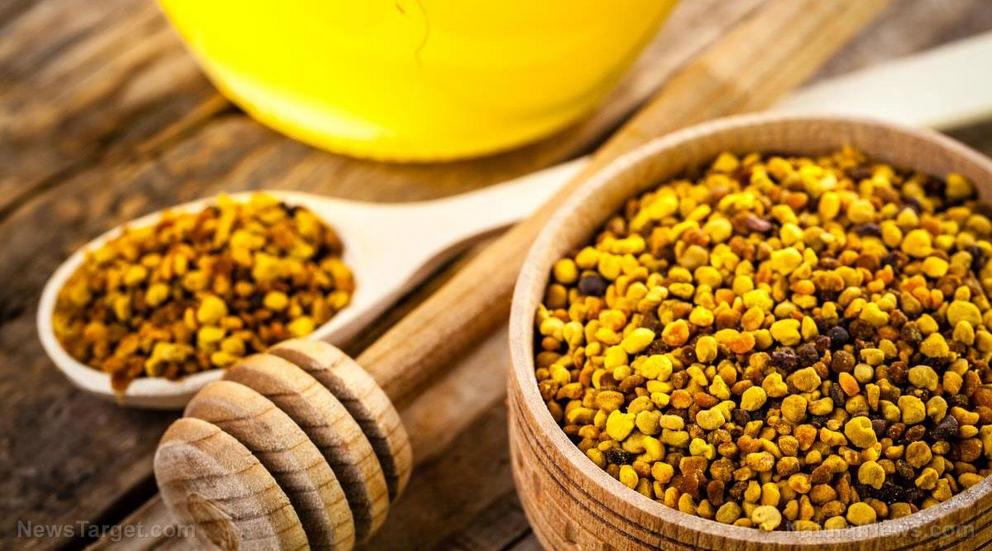Bee pollen is one of nature’s most complete superfoods – here’s why
Most people are familiar with honey and its many health benefits; but few people know about another product from bees called bee pollen. As its name suggests, this product is made by bees from the pollen they have collected which they then form into granules by combining it with their saliva. It might not sound very appetizing but it has a sweet and slightly floral taste that you’ll love.
Each granule of bee pollen is packed with amino acids, vitamins, fatty acids, and minerals that are needed for different bodily functions. This makes bee pollen one of the most complete superfoods so if you’re suffering from nutritional deficiencies then this product might be able to fill in the gaps. These nutrients contribute to the many beneficial properties that bee pollen has, which include the following:
- Contains large amounts of protein — The protein content of bee pollen exceeds those of beef, eggs, or cheese of equal weight. Moreover, these proteins are found as free amino acids that the body can readily utilize even in the absence of enzymes for protein break down.
- Reduces inflammation — Bee pollen is rich in flavonoids such as quercetin that are known for their anti-inflammatory properties. Studies have shown that the ability of bee pollen to reduce inflammation is comparable to that of conventional anti-inflammatory drugs.
- Relieves allergies — One of the traditional uses of bee pollen is as a natural remedy for allergies. The anti-allergy effects of this product were observed by researchers to be true since it is able to reduce the amount of histamine produced by mast cells as a response to allergens. (Related: Bee pollen: Nature provides an answer for allergies.)
- Protects against cancer — Recent studies have shown that bee pollen significantly inhibits tumor growth and kills cancer cells. Unfortunately, there isn’t much information regarding how it works.
- Boosts metabolism and energy — Because of its high protein content, eating bee pollen also improves metabolism, which is impaired in people with protein-deficiency. As a result of improved metabolism, the body will also have higher levels of energy that it can utilize. Moreover, bee pollen increases muscle mass by restoring protein that has been lost.
- Eliminates harmful bacteria — Bee pollen contains a naturally-occurring antibiotic element that is effective against Salmonella and other bacterial strains.
- Increases fertility — If you’re finding it difficult to conceive a child, then you might benefit from eating bee pollen. It has been shown to boost fertility by stimulating ovarian function. Additionally, bee pollen improves the survival of eggs through the incubation phase so that pregnancy can proceed.
- Improves skin conditions — Bee pollen has large amounts of antioxidants that can neutralize free radicals caused by ultraviolet rays of the sun or exposure to toxins from the environment. By eating bee pollen regularly, you can prevent the formation of wrinkles and fine lines. Moreover, its powerful antibacterial properties also prevent acne and promote wound healing.
How to eat bee pollen
If you want to enjoy the benefits of bee pollen, start by eating 1/4 to 1/2 teaspoon per day. It’s also best if you don’t cook it before eating since the heat can denature some of its beneficial components. One good thing about bee pollen is that you can easily incorporate it into foods that you normally eat. Some of the ways through which you can include it in your diet include the following:
- Sprinkle it over yogurt, cereal, or oatmeal
- Add it to your homemade granola
- Mix it into your smoothies
- Garnish dark chocolate with it
- Smear it over your bread
For more articles about the health benefits of superfoods, visit Superfood.news.
For full references please use source link below.

